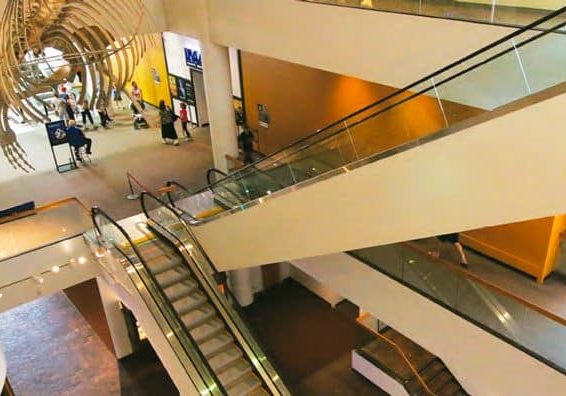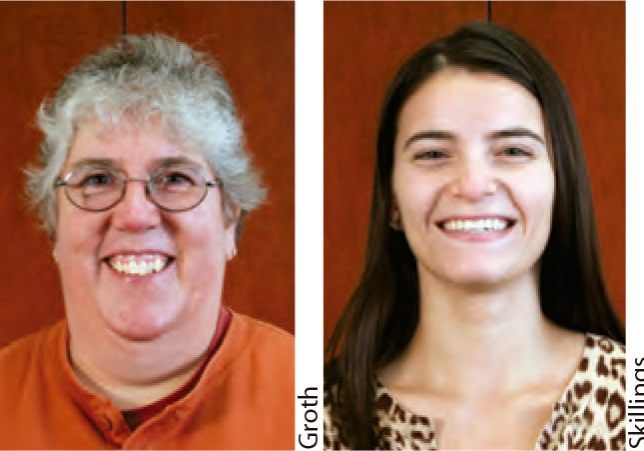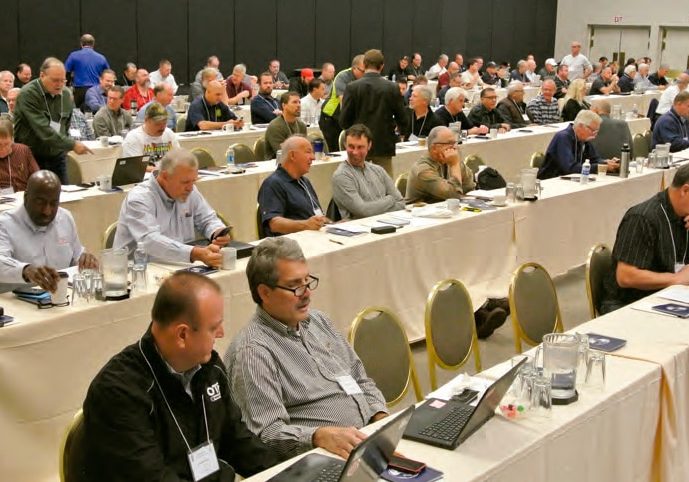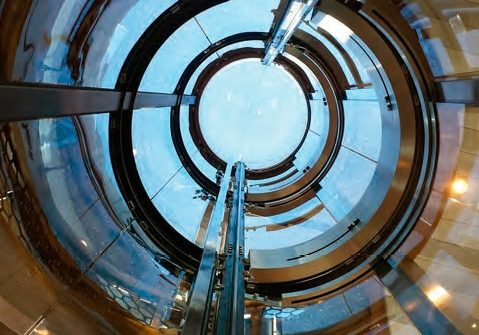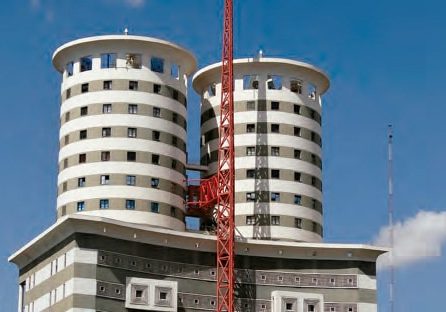Let There Be (UV-C) Light
Jan 1, 2017
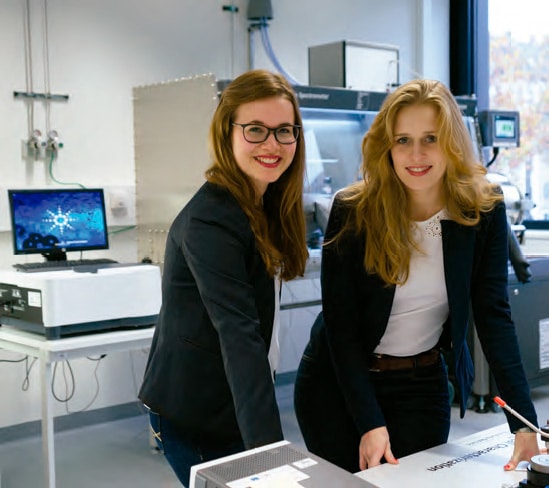
Startup recognized as top innovator in Germany, aims to take escalator-handrail sanitation system worldwide.
Germany has quite a few business-plan competitions and companies that have won them. In 2015, there were 810 winners, to be exact. Competition organizer fuer-gruender.de ranked which companies were honored most frequently that year. UVIS UV-Innovative Solutions GmbH, a small business-to-business firm that provides an escalator handrail sanitation system implementing ultraviolet-C (UV-C) lamps that use radiation to kill germs, was in the top 40.
Founded in early 2016 by business partners Katharina Obladen and Tanja Nickel, UVIS UV-Innovative Solutions produces handrail-sanitation system ESCALITE, originally sold only to public-transit escalator operators but now branching out into mall sales. Its purpose is twofold: to contain the risk of infection in public spaces and minimize the risk of falling on an escalator.
Obladen elaborates:
“In the public-transportation sector, escalators are constantly busy, and the risk of falling is very high. That’s why our product fits in perfectly. Using our awareness campaign, the operator informs the user of the clean handrail and brings their attention to actually using it, instead of avoiding contact. Moreover, the owner of a shopping mall wants to use ESCALITE for its image campaign. Studies show that people feel more comfortable in a hygienic environment, and people who feel good tend to stay longer and, in a mall, spend more money.”
Obladen and Nickel got their first taste of success when they won a business-plan competition sponsored by the Boston Consulting Group at their high school in Cologne, Germany. This was in 2009-2010, when the scare of a new strain of influenza known as swine flu was sweeping the nation. Keeping clear of germs was at the forefront of everyone’s minds, so this became the driving force behind the young women’s research.
Obladen points out that viruses spread easily in crowded public areas like airports, shopping malls or train stations, because the gummed surface of escalator handrails provides optimal fertile soil for bacteria, germs and fungi. Everyone who uses an escalator, she says, leaves invisible traces and supports the survival of these microbes.
In their research, the pair also learned about New York City using UV-C lamps to disinfect its drinking water. They dug deeper and discovered the cold, short-wave radiation technique could also be used to disinfect surfaces such as escalator handrails. Nickel elaborates:
“After deciding how to disinfect the handrail, we got in touch with major lamp manufacturers and asked for their expertise. They recommended one of their partners that specialized in custom-made solutions for disinfection. We described our project and, together, worked on a module, which could disinfect the handrail and would fit the necessary parameters. In this process, we stayed in touch with an escalator producer who provided input in terms of escalator knowhow. We learned from each specialist and combined all the information to create an effective and sustainable product over the years.”
Consisting of three UV-C lamps arranged in a triangular formation to degerminate every part of the handrail, ESCALITE is added to the truss of the escalator. The light destroys every kind of microorganism, resulting in a degermination rate of up to 99.5%. For humans, the irradiation would have the effect of a strong sunburn, but in this case, the germs become harmless, because the light denaturizes their DNA.
ESCALITE is compatible with every kind of escalator. Therefore, it can be built into a new unit but can also be added to those already in use. The module can be supervised remotely, and necessary service can be combined with an already existing service schedule. “ESCALITE’s patented technique stands in the tradition of German engineering and creates a safe and clean environment in public spaces,” Obladen states.
Swine flu may have all but vanished, but UVIS has not stopped working. After Obladen and Nickel graduated high school and moved away to attend university, they remained partners, obtaining a patent for their innovation before forming their company. UVIS continues to work with different partners and experts from various sectors out of its Cologne headquarters. In December 2016, it was one of the top-20 most innovative startups of the North Rhine-Westphalia region selected to present to potential investors and corporate representatives at the European Venture Summit in Düsseldorf, Germany, described by fuer-gruender.de as the “grand prix of European startup” events.
The company has an investor and five employees who work with what Obladen calls a “very strong network” of advisors and specialists. UVIS is open to joining forces with additional investors, however, and hopes to add employees as it grows and adds more products that disinfect surfaces with UV-C light. ESCALITE is produced and tested in Germany, in turn supporting local companies and engineers.
Nickel says there are competing products on the market that use liquids, rather than UV-C light, or a combination. She observes that some are harmful to the environment, while those that also use UV-C light work with only one lamp situated across the handrail. She adds:
“This leads to a short time of exposure. Depending on the speed of the escalator, the exposure timeframe using only one lamp is less than a few milliseconds. Most microorganisms need a higher dose of UV-C than the one the competing product can generate in this short timeframe.”
Because it is installed in the truss of the escalator, ESCALITE poses no risk of passenger injury, Nickel says.
The aim of ESCALITE is to make escalator passengers feel comfortable and safe, and, therefore, spend more time in malls, airports or corporate buildings. Optimistic about UVIS’ future, Obladen believes ESCALITE “lives up to its promise of generating a more secure environment by reducing the number of injuries and possible infections on escalators.”
Get more of Elevator World. Sign up for our free e-newsletter.


